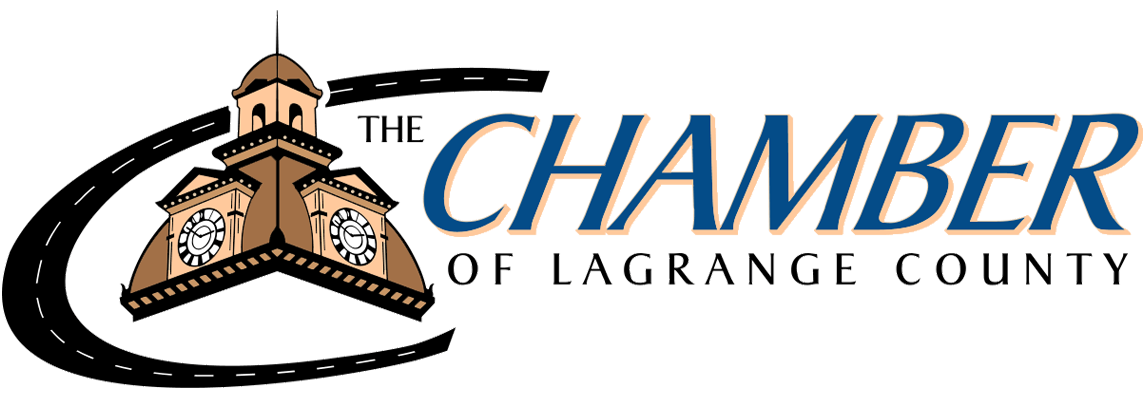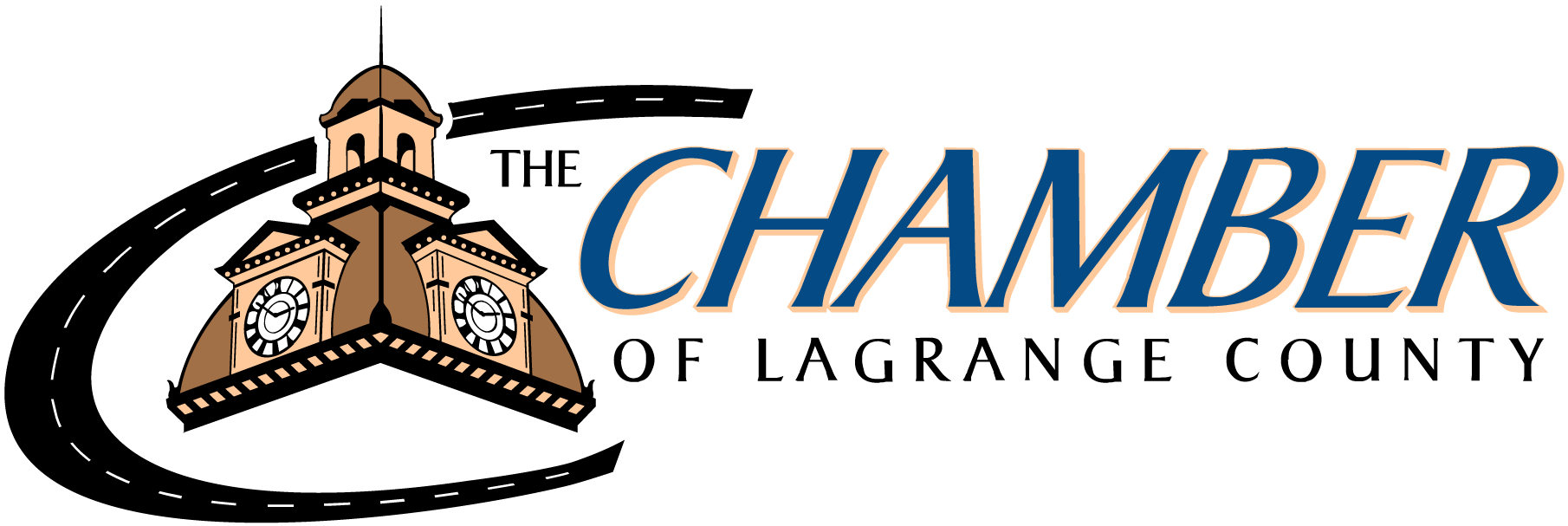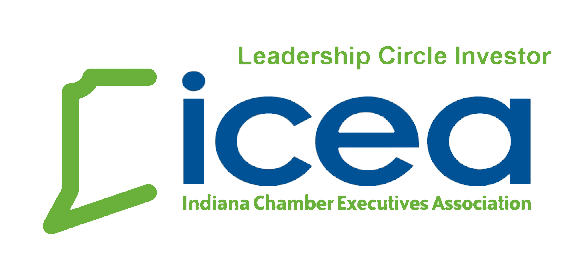By Regional Chamber of Northeast Indiana
•
March 28, 2025
Senate With session now moving into full swing, bills have been moving out of the chamber on a final vote. A list of just a few of bills that passed out of the Senate this week follows: HB 1114, Driving without a license , passed 43-4 HB 1131, Town of Cumberland , passed 43-4 HB 1214, Worker’s compensation , passed 48-0 HB 1380, Supplemental fee for electric vehicles , passed 45-2 HB 1382, Dealer services division , passed 47-0 HB 1425, Lab grown meat labeling , passed 41-6 HB 1459, Water and wastewater utility asset management , passed 45-2 HB 1466, Various agency administrative matters , passed 47-0 HB 1498, School accountability , passed 43-4 HB 1499, Education matters , passed 46-1 HB 1518, Purchase of vehicles by state entities , passed 48-1 HB 1666, Ownership of health care providers , passed 46-1 In session on Monday, the Senate took a final vote on HB 1393, Immigration notice (Sponsor: Sen. Aaron Freeman, R-Indianapolis), which passed by a vote of 37-10. The bill would require notification to the local sheriff when a law enforcement officer has probable cause for belief that someone arrested for a felony or misdemeanor is in the country illegally. The bill was amended in both committee and on second reading . The amendment in committee changed the notification requirement to require notification to a sheriff. The second reading amendment removes immunity provisions that were in the bill. HB 1393 will now return to the House for concurrence or dissent due to the amendments. On Tuesday, the Senate Homeland Security and Transportation amended and voted on HB 1461, Road funding (Sponsor: Sen. Mike Crider, R-Greenfield). The committee adopted six amendments to the bill before voting it out by a vote of 6-1. The first three amendments were mostly technical changes ( #22 , #24 , and #25 ). The larger amendments included Amendment #23 , which added a tax incentive for short line rail. Amendment # 30 enlists the help of townships, requiring them to adopt a Capital Improvement Plan and set unused unrestricted funds towards road funding in their next budget. Lastly, Amendment #31 changes the proposed Community Crossings Grant to include one pot of money and remove the wheel tax requirement. The amended HB 1461 provides new and expanded options for state and local road funding, including incentives for improvements, increased county transportation tax limits, allowing bonds for road construction, enabling potential tolling of interstate lanes, and adjusting grants and matching funds based on local needs. The amended bill will be recommitted to Senate Appropriations before heading to the Senate floor. Also heard in Senate Homeland Security and Transportation was HB 1390, Bureau of motor vehicles (Sponsor: Sen. Crider). The bill contains multiple provisions regarding the BMV and was also amended heavily in committee. The two most notable amendments were Amendment #22 and Amendment #31 . Amendment #22 enacts a prohibition on the advertisement of a product on Indiana’s controlled substances list on an outdoor advertising sign located adjacent to an Indiana highway. The committee noted that this mainly targets the advertisement of marijuana in Indiana’s border counties. Amendment #31 targets towing services, particularly predatory towing. This amendment passed 4-3. The amended bill passed out of committee with a 6-1 vote and will have to be recommitted to Senate Appropriations . Also on Tuesday morning, the Senate Corrections and Criminal Law amended and voted on House Republican priority bill HB 1006, Prosecutors (Sponsor: Sen. Aaron Freeman, R-Indianapolis). HB 1006 targets public safety by providing additional state support to prosecutors. After lengthy discussion and testimony last week in committee, the bill was amended yesterday with two technical amendments ( #14 and #20 ), as well as Amendment #22 , which changes the review board from containing no more than 3 members of any political party to no more than 4. The bill passed out of committee 5-3 and has been recommitted to Senate Appropriations . On Wednesday morning, Senate Health and Provider Services took a lengthy amount of testimony (only testimony) on House Republican priority bill HB 1003, Health matters (Sponsor: Rep. Brad Barrett, R-Richmond) from various stakeholders and concerned citizens. The House and Senate Health Chairmen pledged to continue working on the bill and expect to bring it back for an amend and vote hearing next week. HB 1003 focuses on improving transparency in healthcare pricing and billing. It also gives patients an increased say in their treatment options and gives them easier access to their health data. On Wednesday, Senate Education and Career Development heard House Republican priority bill HB 1002, Education matters (Sponsor: Sen. Jeff Raatz, R-Richmond). HB 1002 cleans up and removes around 35,000 words from Title 20 Education in the Indiana Code. The sweeping deregulation bill targets expired programs that are no longer being funded, and removes multiple may provisions throughout the code in an effort to establish more local control. The bill received multiple amendments that reset sections of the bill ( Amendment #31 ), dealt with regulation on AEDs ( Amendment #30 ), and allowed school corporations to collect fees for non-curriculum material ( Amendment #29 ). Additionally, Sen. Gary Byrne (R-Byrneville) proposed Amendment #32 that removes Social Emotional Learning and Trauma Informer Care from the state teaching curriculum. After lengthy debate the amendment was adopted 8-4 along party lines. Lastly, Sen. Greg Goode (R-Terre Haute) added language from SB 382 related to county transfers or gifts to school corporations ( Amendment #33 ). The amended bill passed committee with an 8-4 vote and will be recommitted to Senate Appropriations . Additionally, the Senate Education and Career Development Committee voted on HB 1041, Student eligibility in interscholastic sports (Sponsor: Sen. Stacey Donato, R-Logansport) without further amendment. HB 1041 passed out of committee unamended in a party line 9-4 vote and will head to the Senate floor for consideration on second reading. This bill would prohibit transgender women from participating in women’s sports at the collegiate level. HB 1041 expands on legislation from 2022 that banned participation at the K-12 level. On Thursday, Senate Utilities heard House Republican priority bill HB 1007, Energy generation resources (Sponsor: Sen. Eric Koch, R-Bedford). As amended, this bill will provide a state tax credit for manufacturing small modular nuclear reactors (SMRs). The bill establishes procedures for energy utilities to seek regulatory approval for new power generation projects, large customer service projects, and SMR-related expenses, including cost recovery mechanisms. It also updates public utility reporting requirements, mandates investigations into plant retirements, and allows the Indiana Utility Regulatory Commission (IURC) to intervene if utilities cannot meet energy reliability standards. Yesterday, the committee amended the bill to remove tariff language from the bill that had been added on the House floor. The bill was recommitted to Senate Tax and Fiscal Policy with an 8-4 vote. Additionally on Thursday morning, Senate Local Government met to amend and vote House Republican priority bill HB 1005, Housing and building matters (Sponsor: Linda Rogers, R-Granger). The committee adopted substantive Amendment #5 prior to voting the bill out 9-1. As written, this bill seeks to finance infrastructure projects that support residential housing. This will be done by expanding the Residential Housing Infrastructure Assistance Program (RIF). The RIF program was initially created two years ago during the 2023 Session, and this bill extends the program throughout the next biennium. House In addition to the various committee meetings, the House also started working through calendars on the floor. Below are just a few notable bills that passed the House this week: SB 141, Eyewitness identification procedures , passed 92-0 SB 178, Natural gas and propane as a clean energy resources , passed 74-20 SB 198, Crime of swatting , passed 95-0 SB 249, Teacher compensation , passed 65-29 SB 281, Expungement , passed 71-21 SB 450, Article V convention , passed 69-27 On Tuesday, House Insurance amended and voted to pass Senate Republican priority bill SB 3, Fiduciary duty in health plan administration (Sponsor: Rep. Martin Carbaugh, R-Fort Wayne), 11-0. This bill seeks to require that health plan intermediaries act in the best interests of Hoosier workers. SB 3 was first heard in committee back on March 4 th but held as representatives and senators worked with stakeholders to refine the bill’s language. Amendment #17 , along with a chairman’s amendment placing a fiduciary standard on third party administrators and PBMs, was adopted as a result of those efforts. SB 3 was engrossed unamended on second reading on Thursday and will be eligible for a final vote in the House as early as Monday. Also on Wednesday, House Utilities, Energy and Telecommunications voted on SB 4, Water matters (Sponsor: Rep. Ed Soliday, R-Valparaiso). The committee did adopt an amendment last week but held the bill for a final vote. Last week’s amendment specified that the projects returning 50% of the water are excluded and provides further clarity on sale, leases, and transfers. The committee chose not to further amend the bill in this week’s committee and passed it out by a 12-0 vote. SB 4 heads to House floor for second reading. On Wednesday, the House Elections and Apportionment Committee met to amend and vote on SB 10, Voter registration (Sponsor: Rep. Kendell Culp, R-Rensselaer). Prior to voting the bill out of committee with a party line 9-4 vote, the committee adopted two amendments to the bill. First, Amendment #10 addresses voter registration list cleanup concerns and requires the Secretary of State’s office to reach out to other states to look into information sharing related to voter lists. Second, Amendment #20 adds another record to the list of approved documents that can be used to identify citizens. SB 10 now heads to House floor for second reading. House Ways and Means amended and voted on Senate Republican priority bill SB 5, State fiscal and contracting matters (Sponsor: Reps. Matt Lehman, R-Berne) unanimously 22-0. This bill seeks to strengthen the state’s fiscal oversight by allowing agencies to use AI for budget projections and report federal funding requests involving state funds. It also enforces stricter transparency measures, including reviewing vacant positions, posting contracts online, and mandating competitive procurement for state-funded contracts. The amendment adopted addressed various concerns from stakeholders related to the different provisions of the bill. SB 5 also heads to the House floor. After hearing testimony from stakeholders last week, the committee also amended and voted on SB 306, Film and media production tax credit (Rep. Chris Judy, R-Fort Wayne) which takes an existing tax credit and makes it transferrable to help the film and media industry to boost investment in the state. The amendment establishes a limit of $250k per tax credit, limits the aggregate amount of tax credits that may be provided to $2 million, and changed the expiration date to 2031. This bill passed unanimously 23-0. SB 306 will head to the House floor as soon as Monday. Governor’s Office Governor Braun signed seven bills into law this week, the first of which was one of his priority bills: HEA 1149, Agricultural online portal, (Rep. Kendell Culp, R-Rensselaer). Read more in his press release . The Governor noted that he was very appreciative of the collaboration that lawmakers provided as this bill is a key step in helping Hoosier farmers. This law will do so by creating a new online portal, giving them a one-stop shop for tools to communicate with the state government and get information they need to be successful. You can view the Governor’s 2025 bill watch here . On Wednesday, Governor Braun signed Executive Order 25-40 , directing the IN Dept. of Environmental Management (IDEM), the Department of Natural Resources (DNR), and the Department of Transportation (INDOT) to publicly report permitting data monthly on their official websites and mandating that the agencies regularly review their permitting processes. Monthly reportable data includes the number of permit applications received, average processing times, the percentage of permits issued within statutory timelines, and updates on pending applications. Governor Braun noted that this is to ensure the process is more transparent, efficient, and supports growth. Early Friday morning, Governor Braun announced the appointment of Jennifer Ruby as Indiana’s Public Access Counselor. Indiana’s Public Access Counselor is responsible for ensuring transparency in government by responding to public inquiries, educating citizens about public access laws, issuing advisory opinions, assisting state officials in complying with public access law, and making recommendations to the General Assembly on how to improve our citizens’ access to our state and local government. Ms. Ruby is an attorney, a mediator, and an entrepreneur with nearly 15 years of experience working with state and local government.





